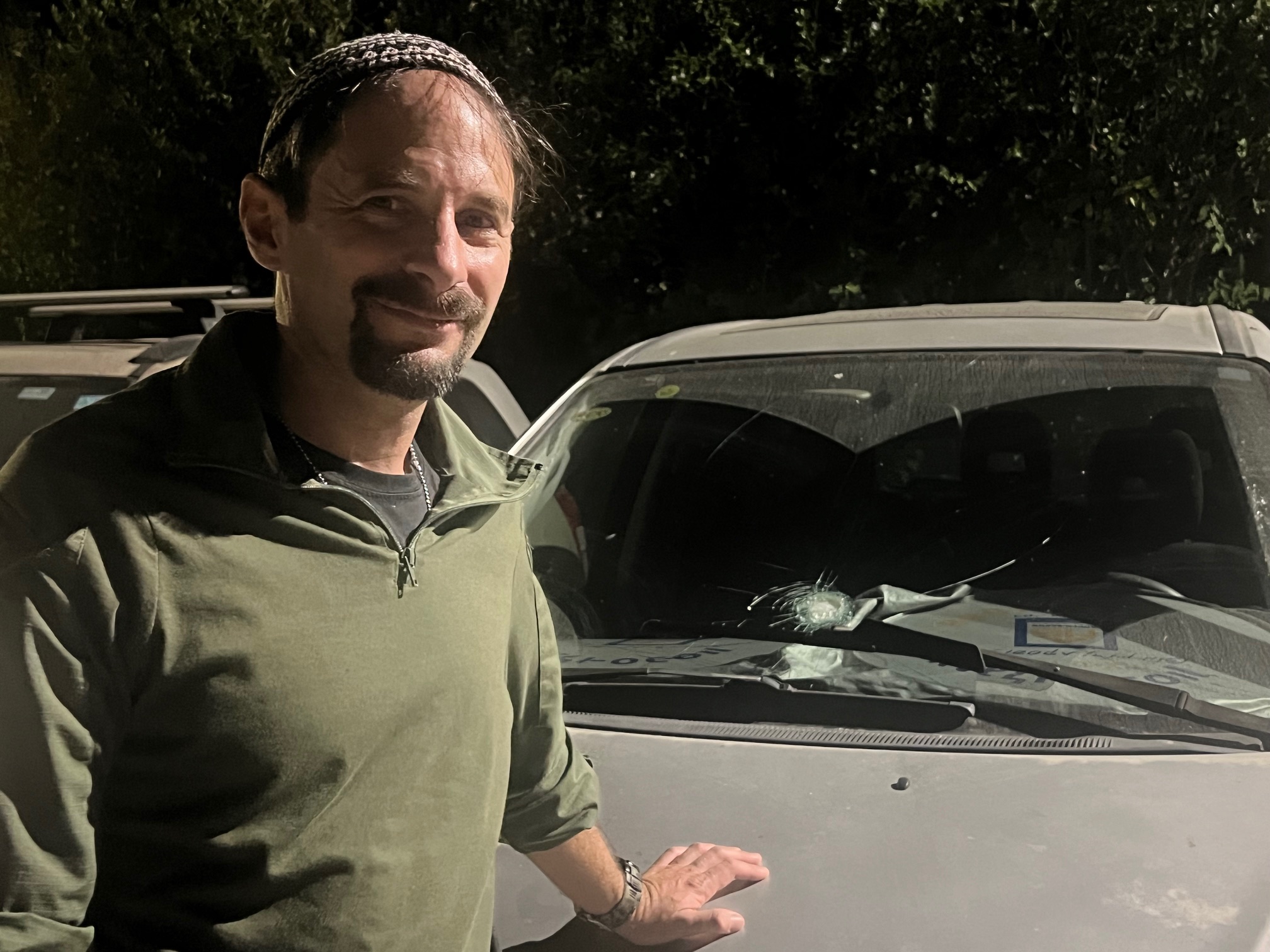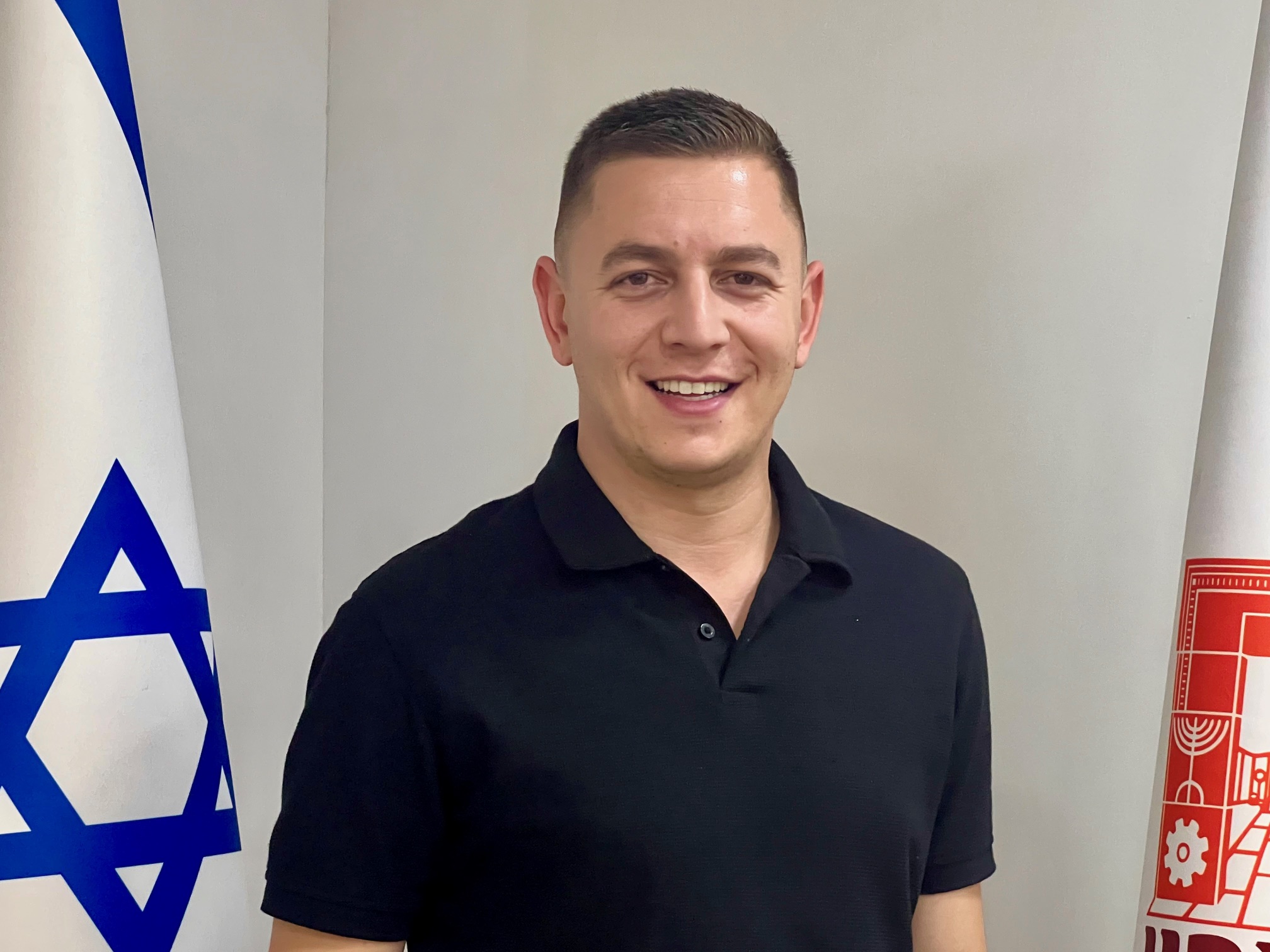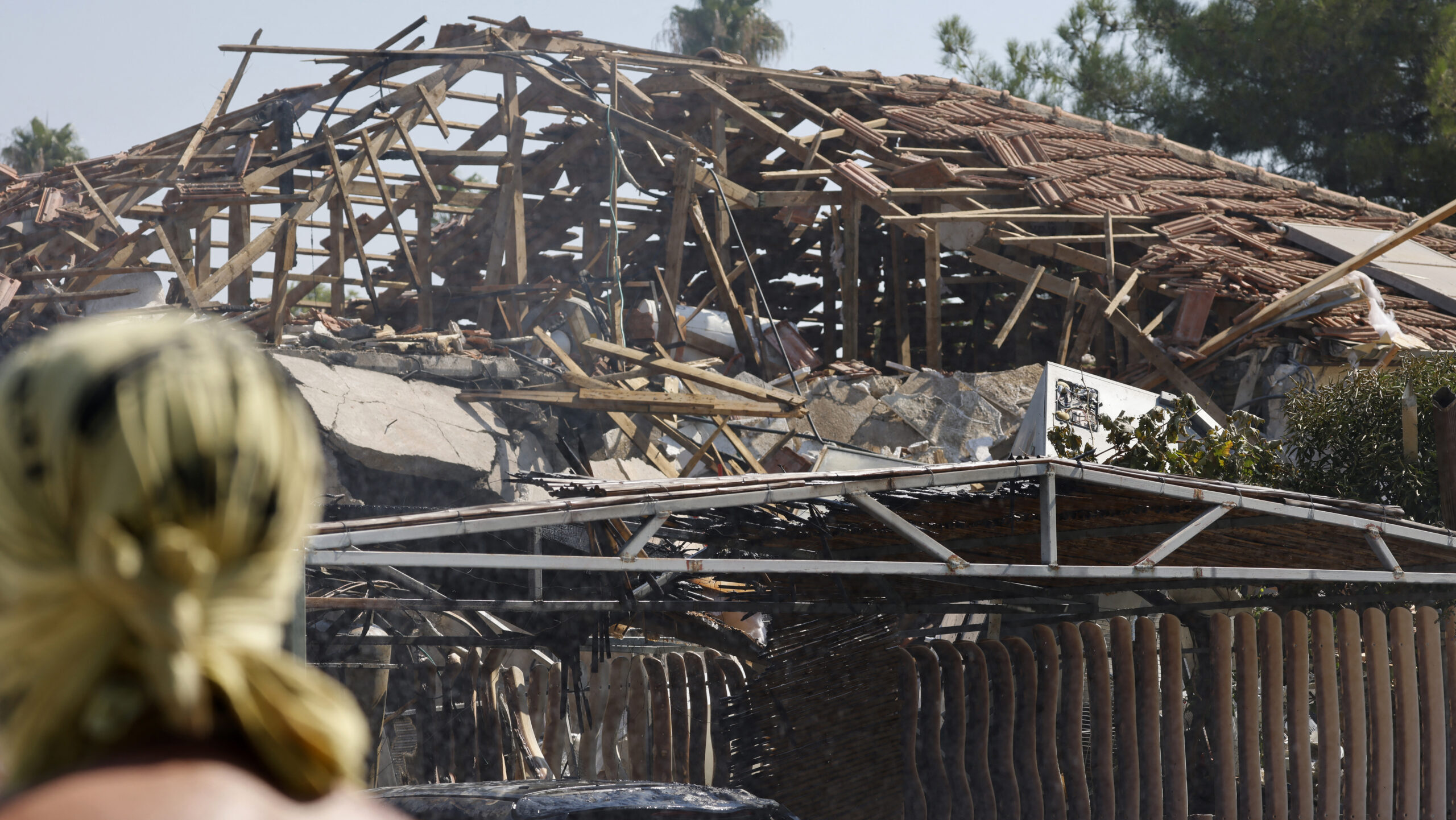Reporter’s Notebook: Surviving Hezbollah’s Onslaught
The Golan Heights remains tense and nearly deserted as residents huddle in homes amid ongoing rocket attacks. Israel's preemptive strike on Sunday thwarted a massive Hezbollah assault, but damage and fear persist
The roads of the Golan Heights were hauntingly still as I drove through them on Sunday evening. With the sun setting, the usual tranquility of this scenic region felt unsettlingly sad. The silence carried a weight as if anticipating another rocket barrage to shatter the peace at any moment.
Even if the attack never came, the absence of life on the streets suggested people were huddled in their homes—if they still had homes to huddle in.
Before sunrise on Sunday, Israel launched a preemptive strike on Lebanon, thwarting what experts believe could have been an attack involving up to 6,000 rockets and UAVs, potentially reaching as far as Tel Aviv. In response, Hezbollah retaliated by firing more than 320 rockets and drones into northern Israel.
The following day, even the trees seemed to sense that something had happened and acknowledged that, as Hezbollah warned, the danger might not be over.
This latest barrage came less than a week after Hezbollah had already pummeled the northern town of Katzrin with over 50 rockets. Katzrin, home to more than 9,400 residents, has remained on high alert since the outbreak of the war—but the people have remained in place.
Several of those rockets struck the town directly, hitting multiple homes and further intensifying the fear and tension in the region.
The attack harmed substantial public infrastructure, including damaging the local antique museum and destroying a 3,000-year-old pitcher.
So far, 24 soldiers and more than 25 civilians have died due to the escalation in the region. Moreover, Keren Kayemeth LeIsrael–Jewish National Fund reported last month that approximately 20,000 dunams of forest had been destroyed by Hezbollah rocket fires. According to Katzrin Mayor Yehuda Dua, around 75% of the fields around his community are burnt.
Dua credited the survival of Katzrin’s residents last week to their strict adherence to Home Front Command instructions, quickly seeking shelter when the rockets fell. He noted that many local homes are fortified, and strategically placed shelters throughout the community, many funded by donations from the International Fellowship of Christians and Jews, have provided crucial protection.
However, there were some close calls.
‘It Was Very Loud’
Ari Ben Yam’s silver Mazda MPV shone in the moonlight on Sunday night. Ben Yam, 47, with four kids between 18 and 12, joined the local emergency security response team formed when rockets started falling on the region on October 8. On Wednesday, August 21, at 8:30 a.m., Ben Yam was asked to relieve a fellow member of the team from guard duty—around the time that the rockets were falling on the community. He left the shelter and went to his car to get ready to go. Then, a siren blared.
I got out of my car and laid on the ground right next to it—between my car and another person’s car standing next to it. I was on the driver’s side when the fireworks began. It was very loud. Very close.
“I got out of my car and laid on the ground right next to it—between my car and another person’s car standing next to it,” Ben Yam told The Media Line. “I was on the driver’s side when the fireworks began. It was very loud. Very close.”
Ben Yam heard shrapnel flying and smashing into objects around him. Then, burnt leaves started falling on him—leaves from a palm tree that he learned later had caught on fire across the street.
The impact sent the shrapnel into my vehicle and several other vehicles parked in the same row
“The impact sent the shrapnel into my vehicle and several other vehicles parked in the same row,” Ben Yam said.
When the situation calmed, he stood up and realized that the passenger side of his car had been hit by shrapnel in several places. The windshield was broken, and a back window had shattered. Yet somehow, he was protected.
We spent the next several hours dealing with different destruction sites in Katzrin, dealing with fires and crowd control, and helping residents as much as possible. Now, I need to find a new car to drive.
“We spent the next several hours dealing with different destruction sites in Katzrin, dealing with fires and crowd control, and helping residents as much as possible,” Ben Yam continued. “Now, I need to find a new car to drive.”
Give the gift of hope
We practice what we preach:
accurate, fearless journalism. But we can't do it alone.
- On the ground in Gaza, Syria, Israel, Egypt, Pakistan, and more
- Our program trained more than 100 journalists
- Calling out fake news and reporting real facts
- On the ground in Gaza, Syria, Israel, Egypt, Pakistan, and more
- Our program trained more than 100 journalists
- Calling out fake news and reporting real facts
Join us.
Support The Media Line. Save democracy.


Ben Yam, a biologist by profession, said that being a response team member has been “psychologically helpful” compared to being “just a passive bystander.”
“I think it is therapeutic, so to speak. And I want to be an example to my children,” he said.

Ari Ben Yam and his car in Katzrin, Israel. (Maayan Hoffman/The Media Line)
‘We Will Not Move Out’
According to Mayor Dua, despite the stress, only a handful of residents have left because of their passionate, pioneering spirit.
We believe in our community. We will not move out. We will use sticks and stones to fight the enemy if we have to. We now have [Hezbollah leader Hassan] Nasrallah threatening us every day. We will not let him break us. Not Hezbollah, Hamas, or Iran will break our resilience and spirit
“We believe in our community,” he told The Media Line. “We will not move out. We will use sticks and stones to fight the enemy if we have to. We now have [Hezbollah leader Hassan] Nasrallah threatening us every day. We will not let him break us.”
“Not Hezbollah, Hamas, or Iran will break our resilience and spirit.”

Katzrin Mayor Yehuda Dua (L) and Deputy Mayor Avichai Yaakov. (Maayan Hoffman/The Media Line)
The community has set itself up to be ready for almost any emergency—even one that looks more like the October 7 Hamas massacre than the rockets Hezbollah has rained down on northern Israel.
Deputy Mayor Avichai Yaakov has spearheaded several volunteer initiatives to ensure the community can support itself during crises. For instance, Katzrin recently established a 15-bed emergency medical center staffed by nurses and doctors to handle light and moderate injuries in the event of a security escalation.
Additionally, the community collaborates with specialist doctors from abroad who stay in Katzrin for short periods to treat more complex cases. A separate volunteer group, equipped with cars, is tasked with transporting the injured to the emergency center or, when possible, to nearby hospitals—the closest of which is 40 minutes away.
Another volunteer group is trained to prepare the dead for burial. Others focus on firefighting, cooking, and providing supplies and support to those who lose their homes in an attack.
Yaakov noted that Katzrin is considered the capital of the Golan, with smaller surrounding towns relying on its strength and resources to support the entire region.

Katzrin Mayor Yehuda Dua. (Maayan Hoffman/The Media Line)
‘I Have A Lot of Fear’
Katzrin resident Eliyahu Berkowitz, 62, with four kids, has lived in the community for 11 years. An immigrant from New Jersey, Berkowitz said he chose Katzrin because “it was quiet and safe and reminded me of where I grew up—and it was until recently.”
There has never been a terrorist attack in Katzrin. While northern Israel is diverse with Jews, Muslim and Christian Arabs, Druze, Circassians, and Bedouins, there are no Palestinians.
“As a result, we have free-range cattle because no one steals them,” Berkowitz said. “It’s slow-paced. You don’t have to lock your doors. And it’s a very tight-knit community.”
But Berkowitz said he has witnessed the abandonment of nearby communities, such as Kiryat Shmona, just a 30-minute drive away. The town has been deserted for 11 months, with at least 40% of residents indicating they do not plan to return. The community lacks bomb shelters, and Hezbollah has repeatedly targeted it in both physical and psychological terror efforts, instilling deep fear among the people.
The war inevitably impacts the daily lives of those who remain, even beyond direct rocket hits. Berkowitz shared that his wife often asks him whether she can drive to certain places, as rockets sometimes fall in open spaces or on roads.
Last month, Israeli parents Noa and Nir Baranes were killed by a direct Hezbollah rocket strike on their car in the northern part of the Golan Heights. They are survived by their three children, aged 18, 15, and 13.
I have a lot of fear
“I have a lot of fear,” Berkowitz admitted to The Media Line. “I taught my wife very carefully what to do in case of a rocket attack when she is driving. I got a cell phone for my son, and I am very strict about taking it with him if he walks out of the house. We were never like that. He’s only 11.”
He continued: “It affects whether or not you travel. It affects whether or not you have outdoor activities. There are items missing from the supermarket. The health services are delayed.”
On Sunday night, we went to eat at a local burger joint; there are around a dozen restaurants and stores in Katzrin. Usually, the park in the center is packed with young people enjoying the summer weather and a slushie. But the night after the twin attacks between Israel and Hezbollah, the only sound was the rustling of trees in the wind. A young man walked his dog.
The restaurant owner remarked, “It is bein hazmanim [summer break for yeshiva students]. They are supposed to be here. But what do you expect? All of the attractions are closed. There’s a war.”
He knew to expect a slow summer with reduced income, he said—though he hoped that the war would be over sooner rather than later.
God forbid it should get worse. I never thought I’d consider places to relocate. I’ve been considering it lately.
Berkowitz sighed, “God forbid it should get worse,” he told The Media Line. “I never thought I’d consider places to relocate. I’ve been considering it lately.”
Ben Yam said that many residents seemed shaken up by the previous week’s attack and the sirens that sounded on Sunday morning.
“Some of them could use some help,” he said. “It’s definitely not a normal situation to go through.”
Berkowitz expressed deep frustration, saying he has “lost all faith in the government” for allowing so many people to remain displaced for so long.
A report from the Taub Center for Social Policy Studies in Israel, released on Monday, revealed that as of last week, around 143,000 residents had been evacuated from their homes—approximately 74,600 from southern communities and 68,500 from the north. So far, about 62,000 evacuees have returned, with some going back to areas still under security restrictions.
The report said roughly 17,000 people have been living in hotels for over 10 months, while about 64,000 are in alternative housing outside their home communities.
“I tell the government officials straight to their faces, you must bring back the security to the people of the north,” Dua told The Media Line. “You need to choose if you want the north to be filled with rockets or flowers. I explained to the government that they cannot wait until tomorrow or next week; they needed to take care of it a few months ago and certainly now.”
But Ben Yam has a different message, one targeted to the citizens of the world:
Everything that we are encountering, everything that we have to deal with, you in Europe and North America will have to deal with shortly, if you have not already. Therefore, it would be wise to support us. Don’t fool yourselves into thinking you can appease the enemy.
“To the rest of the civilized world: We are fighting your fight,” he said. “Everything that we are encountering, everything that we have to deal with, you in Europe and North America will have to deal with shortly, if you have not already. Therefore, it would be wise to support us. Don’t fool yourselves into thinking you can appease the enemy.”
He said, “If you cannot support us, then get the hell out of the way.”
And his message to the terrorists?
“I don’t think that message should be delivered verbally.”

